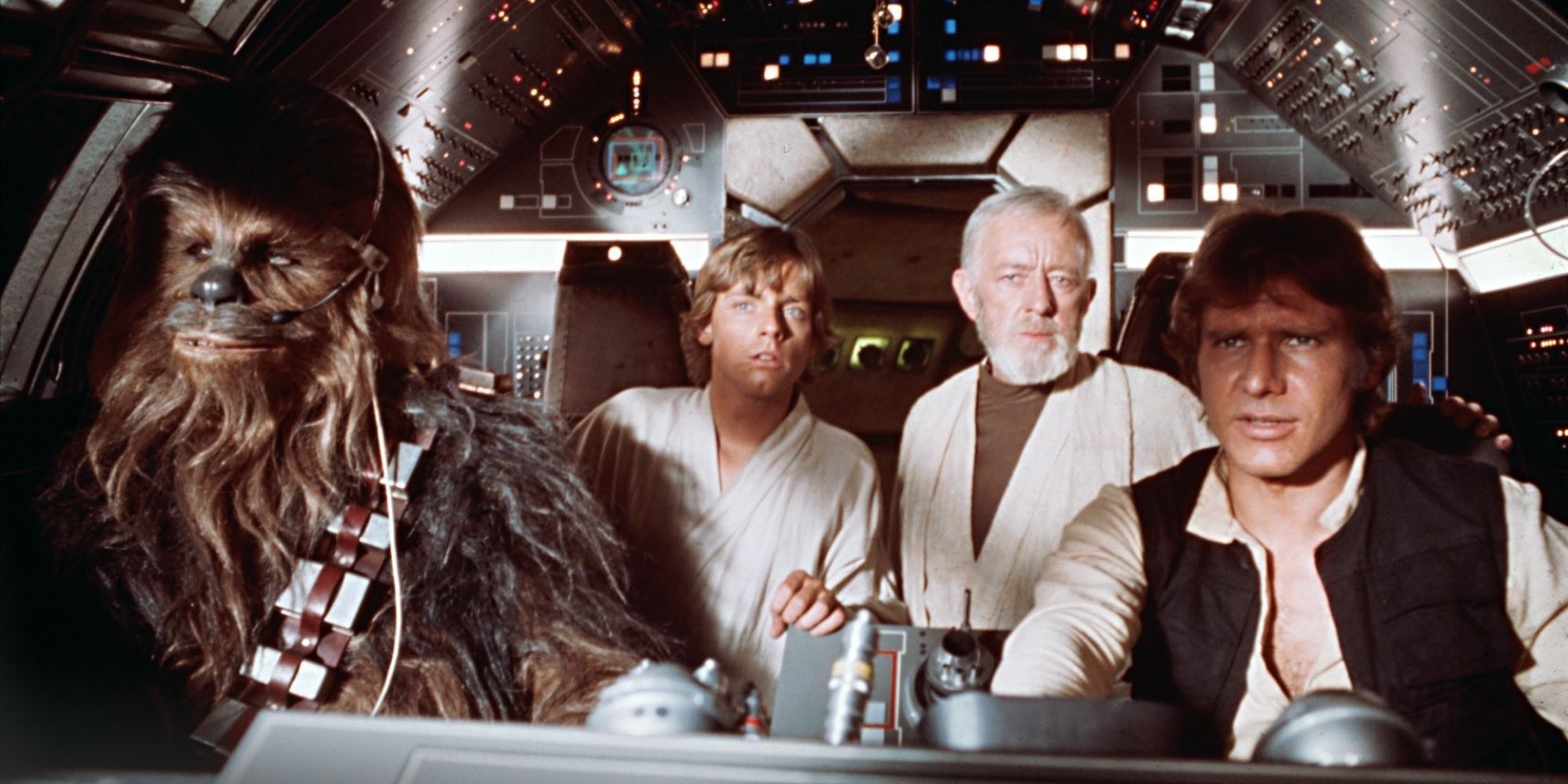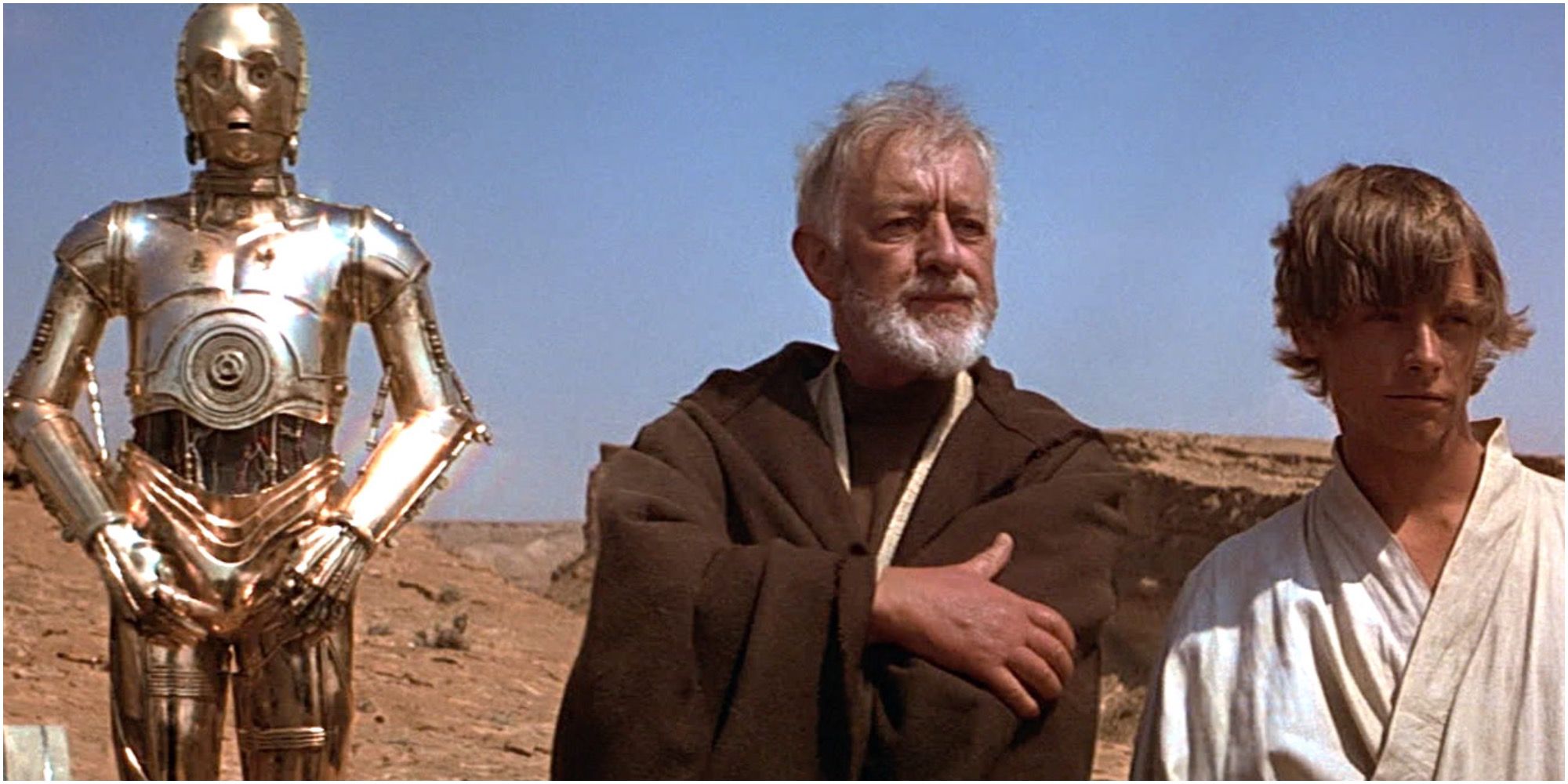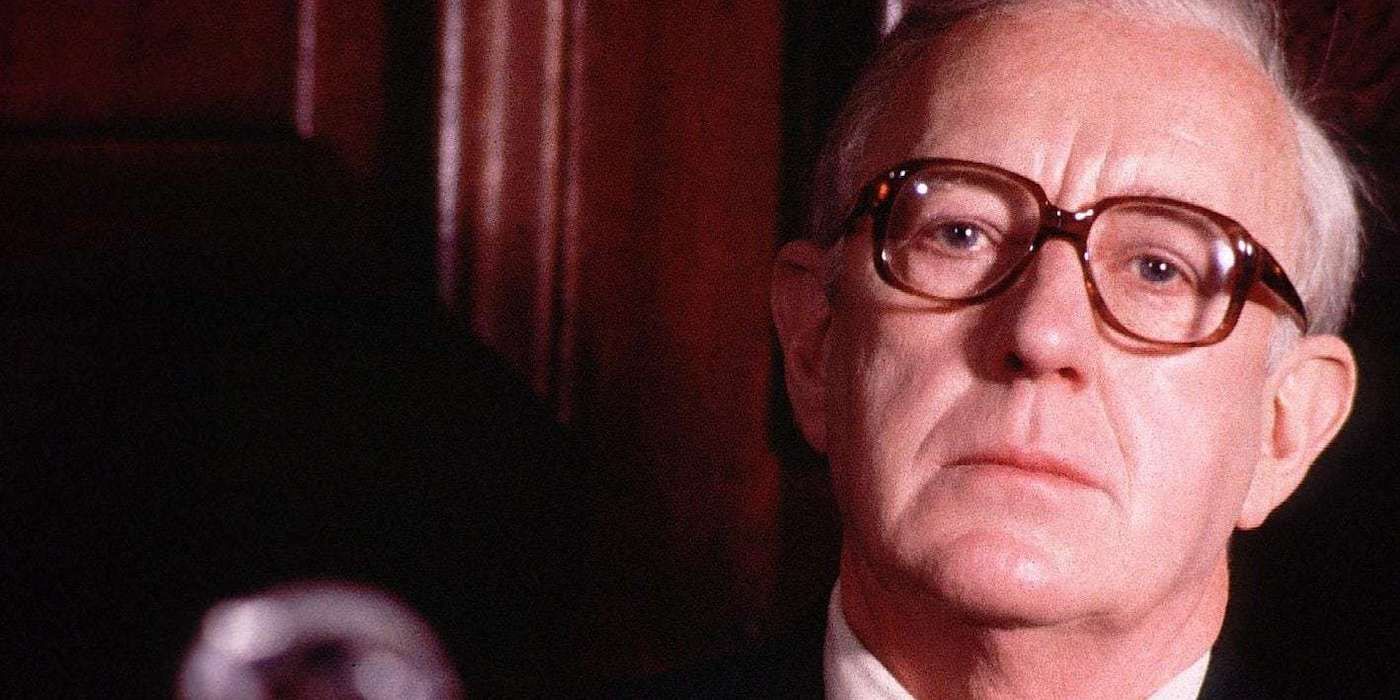The Big Picture
- Alec Guinness, despite his great accomplishments as an actor, became forever tied to his role as Obi-Wan Kenobi in Star Wars, which he took partly for the money.
- Guinness was initially dissatisfied with the Star Wars dialogue and characterizations, and felt uneasy about the influence the film was having.
- Guinness prided himself on being a character actor who didn’t want to be noticed and preferred internal thought process over outward appearance. He didn’t want to be associated with any specific project or commercial, but Star Wars residuals allowed him to live a comfortable life.
Alec Guinness is one of the most renowned actors in the history of the arts — a true thespian, an Academy Award winner with three other acting nominations and a lifetime achievement award to his name. He was knighted by Queen Elizabeth II and is forever tied to the legacies of great filmmakers like David Lean, Alexander Mackendrick, and Ronald Neame. But to a lot of people, he’s still just the guy who played Obi-Wan Kenobi in the original Star Wars trilogy. Once he became Obi-Wan, that shadow loomed over his head for the rest of his life, and Guinness never got over it. For a man who seemed perpetually dissatisfied and unhappy with his life, the idea that his role as a space wizard (that he, in part, took just for the money) mattered more than his lifetime devoted to what he perceived as higher art must have felt like no less than a profound insult.
How Guinness Got Involved in Star Wars
Guinness has shared in interviews that when his agent sent him the script for Star Wars, he found the dialogue quite “rubbish,” but he also found the story so compelling that he had to keep turning the page. According to the Hollywood Reporter, he wouldn’t agree to take the role until 20th Century Fox doubled their salary offer to $300,000 and threw in an extra 2% of the backend gross. Star Wars director George Lucas would later give him an extra 0.25% of the gross when the film became a huge hit out of gratefulness to Alec. By the time the sequels rolled around, Guinness didn’t even really want to do them. “I said yes to a day’s work on Star Wars II,” he wrote in his diaries. “It’s dull rubbishy stuff, but, seeing what I owe to George Lucas, I finally hadn’t had the heart to refuse.” This already sounds like the words of a man who second guessed his involvement in one of the biggest franchises of all time, and we haven’t even reached the point in time where real people lionized him as an actual space guru.
Guinness’s Distaste With Star Wars Success
Since it’s well known that he was already throwing shade at Star Wars dialogue and even its characterizations before signing on the dotted line, it shouldn’t come as much of a surprise how he would react when millions of people around the world screamed out “actually no, you’re perfect, and you’re my new god, so please come fix all the problems in my actual life.” Guinness was a prolific writer of diaries and letters, and in such entries, he would frequently expound on such complaints as how none of the dialogue “makes my character clear or even bearable.” In his autobiography A Positively Final Appearance, he stated that “twenty years ago, when the film was first shown, it had a freshness, also a sense of moral good and fun. Then I began to be uneasy at the influence it might be having.” In that same book, he also told a story about a 12-year-old boy coming up to him and telling Alec that he had seen Star Wars around 100 times; Alec was so mortified by this admission that he essentially bribed the kid with his autograph and begged him to never watch it again. Above all else, what kept him in check and appreciative of his involvement in Star Wars was, shock of shocks, the money. He shared that he “can live for the rest of my life in the reasonably modest way I am now used to, that I have no debts and I can afford to refuse work that doesn’t appeal to me.” The man was truly living the actor’s dream life, outside the crushing existential pressure.
The thing that’s important to understand about Guinness and how he saw himself as an actor is that, ultimately, he never wanted to be noticed. He prided himself on being the ultimate character actor who was most excellent at “finding a different personality,” as he put it in his Washington Post interview. He considered his acting style to be that of a “miniaturist,” relying more on internal thought process and suggesting what he’s truly feeling compared to what he’s saying. He wasn’t a chameleon as much as he was the Invisible Man, hiding in plain sight. As critic Kenneth Tynan put it, his best roles were “iceberg characters, nine-tenths concealed, whose fascination lies not in how they look, but in how their minds work.” He was so committed to not being a public star affiliated with any one type of project or association that he never did a single commercial sponsorship because he didn’t “want to see myself on the back of a bus. It would make me wince every time.” Obviously, he didn’t have to do any commercials thanks to those Star Wars residuals.
Why Guinness Distanced Himself Over Time
All things told, the last thing Alec Guinness would have ever wanted is to be the poster child for a massive, sci-fi franchise. Being put in the position of having strangers pelt him with letters asking him to fix their marriage and gassing him up as an actual religious genius is an existential circle of purgatory he couldn’t have dreamed of. When your life mission is to do what you love in a manner that makes people forget you’re even there, what good does it do you to be etched in stone as one of the few characters you don’t care about? This man won an Oscar for a character study in the line between self-delusion and commitment to duty in Bridge on the River Kwai; he recreated the legendary actor Alastair Sim flawlessly in The Ladykillers; he perfected the art of being the ultimate spy as George Smiley in Tinker, Tailor, Soldier, Spy — all roles that speak much more to the type of artist he saw himself as and wanted to be remembered for. The saddest part is that he saw all of this coming; in a 1977 interview, he said that people “are going to read too much into it, it’s simple, simple stuff for all ages.” If only he knew how much worse fandom would get.
























































![Key Metrics for Social Media Marketing [Infographic] Key Metrics for Social Media Marketing [Infographic]](https://www.socialmediatoday.com/imgproxy/nP1lliSbrTbUmhFV6RdAz9qJZFvsstq3IG6orLUMMls/g:ce/rs:fit:770:435/bG9jYWw6Ly8vZGl2ZWltYWdlL3NvY2lhbF9tZWRpYV9yb2lfaW5vZ3JhcGhpYzIucG5n.webp)




















